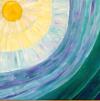Watch
Blaise Pascal

Blaise Pascal
Blaise Pascal
1972
Drama
TV Movie
2h 15m
Blaise Pascal struggles to understand the natural world around him, in addition to an inner quest for religious faith. (imdb)
Directed by:
Roberto RosselliniWriters:
Roberto Rossellini, Marcella MarianiStarring:
Pierre Arditi, Giuseppe Addobbati, Giuseppe Mannajuolo, Rita Forzano, Christian De Sica, Livio Galassi, Bruno Cattaneo, Christian Aligny, Marco Bonetti, Melù Valente, Teresa Ricci, Bernard RigalRatings & Reviews
Cast & Info
Directed by:
Roberto RosselliniWriters:
Roberto Rossellini, Marcella MarianiStarring:
Pierre Arditi, Giuseppe Addobbati, Giuseppe Mannajuolo, Rita Forzano, Christian De Sica, Livio Galassi, Bruno Cattaneo, Christian Aligny, Marco Bonetti, Melù Valente, Teresa Ricci, Bernard Rigal
Loading ...
Similar Titles
Loading ...
Statistics
Loading ...
Trailer
Loading ...













